- Home
- Mordecai Richler
The Incomparable Atuk Page 5
The Incomparable Atuk Read online
Page 5
Upstairs, the Old One began to stir. Atuk sniffed nervously. He had no desire to cross with him this morning.
There was, of course, plenty of mail.
Bruno of Ottawa wished to photograph him. Good, Atuk thought, and he jotted down a note on top of the letter for Miss Stainsby. Harry Snipes wanted to see him about a possible television series. Atuk was interested, he went for the idea, but he marked the letter ‘request more details’, for he was not going to get involved in another of those coproduction deals, pilot films, percentages, work now and maybe, get paid later. Elsewhere, the president of Educational Folk Toys, Inc., was enthusiastic about the Esky-Doll but he wanted to get together to discuss royalties, possible promos, and the Eskybilly disc tie-up, before he went into production. Well, Rory could handle that one too. A lady in Regina had sent Atuk a pair of knitted socks. They looked dreadful. Flashy. Negroid, he thought. Atuk held them over the wastepaper basket and then had second thoughts. Treated properly this was just the kind of heart-warming story that would make a big splash in the western papers. ‘Develop,’ Atuk wrote on top of the lady’s letter, ‘Hickville-wise.’
Somebody was coming down the steps. Atuk sniffed tentatively. Yes, damn it, it’s the Old One. I can’t face his reproaches this morning, he thought. If he feels so badly why in the hell doesn’t he return to the Bay? Atuk grabbed a pencil, some paper, and slipped into the toilet. ‘Atuk to Stainsby,’ he wrote, ‘poem, esk. style, broad, rights, CBC Anthology, pay, min. $100. Pub. rights, McAllister’s Fort., min. pay, ditto.’
O plump and delicious one
here in land of so short night
me
alone,
humble,
hungering
A pounding on the door.
‘Who in the hell is it?’
‘Me. Ti-Lucy. Let me in. Quick, brother.’
‘Goddam it, I’m working.’
‘But if we use the sink you are angry with us.’
‘All right. OK.’ Atuk held the door open for her. ‘You people. Christ!’
‘Will we be allowed the great magic tonight, brother?’
‘You heard what I told the boys last night. Only if there’s an upswing in production. Only if. You tell them that. And would you mind shutting the door after you, please.’
Rory, as he anticipated, phoned at ten sharp.
‘Well you certainly fouled things up last night,’ Rory said, ‘didn’t you?’
‘How come? Did you read McEwen this morning? She thinks I’m great.’
‘Don’t be so sure. Why didn’t you come to my place?’
‘I was ill. Too much excitement. Too much drink.’
‘Bone and McEwen sat here waiting around until three in the morning. I nearly went out of my mind. Do you want to start out by making enemies of two of the most influential figures in the country?’
‘Certainly not.’
‘Haven’t you heard of the telephone?’
‘I passed out. Honestly, Rory.’
‘Just thank your lucky stars for Bette. She appeased them. She charmed them. She told them that she’s been helping you for quite a while now.’
‘Did she say how?’
‘No. Listen here, Atuk, you put me on the spot like last night once more and—’
‘Never again, Rory. I swear. And don’t worry about Bone. I’ll send him a note.’
Bette phoned next.
‘I passed out,’ Atuk said. ‘I’m sorry.’
‘Are you coming to my place tonight?’
‘Sure.’
Atuk worked until noon and then got into his coat.
‘I had thought,’ the Old One said, blocking his path, ‘that you were going to break bread with me today.’
‘Sorry. I’ve got an important engagement.’ Atuk took down the bar, he unbolted the door, and opened the locks one by one. ‘Now don’t look at me like that. This is strictly business.’
4
Bone. Seymour Bone.
If Bette Dolan swam into the heart of a nation with one mighty effort then Seymour Bone, another national figure, had to plan, connive, claw, insult, lust and rage for years before he was recognized. Dominion-wide.
Out of the west he came on flat broad feet in 1945, the rebellious, ambitious, acme-ridden son of a successful Presbyterian salesman. Out of the west to conquer Toronto; the cruel capital. A fat ungainly redheaded boy, Bone had abandoned his native plain because his ideas, his style of life, were considered too wildly bohemian by the people there. Bone openly read Samuel Butler, he advocated drinking on Sundays, quoted George Bernard Shaw, and subscribed to journals such as John O’London’s. In a Rotary-sponsored debate, actually to do with the United Nations, he came out flatly for premarital relations. But at the University of Toronto, Bone, to his dismay, discovered that his ideas were not considered very, very shocking. He fitted in nowhere. The intellectuals put him down for a backward, if amusing bumpkin, and the others found him a bore. Lonely, broken-hearted, he began to eat prodigiously, mostly bananas, and felt himself an utter failure until he was taken in hand by Ruthy Rosenthal. Ruthy, outspoken daughter of a Toronto pants manufacturer, was even more rebellious than Bone.
At the age of twelve, already an unbeliever, she said to her grandfather, ‘And whom, may I ask, did Cain marry?’
‘Communist bitch.’
Persecuted for her ideas, Ruthy was driven to further extremes of rebellion. She began to eat bacon. She refused to attend her grandmother’s funeral. ‘As I am already an atheist,’ she said, ‘it would be hypocrisy for me.’
‘But she’s your bubba, when you were a little cacker who wiped you?’
‘I won’t be swayed by false sentiment.’
Ruthy thought it was endearing of Seymour Bone, on first meeting, to think he could shock her by lending her his copy of Jurgen. It was in a plain brown wrapper.
‘Jurgen, Cabell. Sweetie-pie,’ she said, ‘haven’t you even heard of Henry Miller yet?’
Bone took The Tropic of Cancer back to his room, his eyes almost popping out of his head as he read. There are, he had to admit, gaps in my knowledge. Ruthy filled the hole with Freud, Fanny Hill, Partisan Review, Trotsky, Auden, and others. They became an inseparable campus couple and, the day after graduation, were married. A civil ceremony of course.
Bone married Ruthy because:
(1)This, he hoped, would prove his ultimate liberation from a provincial anti-Semitic family.
(2)Let’s face it, the girl, being a Jewess, would be forever in his debt. She could never be unfaithful. On the contrary. She would be respectful, grateful.
(3)He had come to adore Jewish cooking even more than bananas.
Ruthy married Bone because:
(1)She wished to give her family a final slap in the face.
(2)It would prove – especially to sceptical friends who predicted she would end up married to a dentist with a house in the suburbs – that she wasn’t ghetto-bound.
(3)Being a goy, he couldn’t be as smart as she was. She could direct and control him.
Bone, who had expected to feast nightly on herrings, knishes, cholent, pastramis and briskets, was served hard-boiled eggs or, on special occasions, sea food.
‘I’m not a chauvinist,’ Ruthy said.
Sea food made her vomit but she was battling to overcome this, like other narrowing prejudices she had inherited.
‘I admire your spirit,’ Bone said.
Ruthy, who had looked forward to sharing her bed with a bullish goy, a brute, a destroyer, a rape artist, instead of an inhibited good-Jewish-boy, found that Seymour was a once-a-week rabbit.
Each time this unconventional marriage was about to break up it was saved by the couple’s conventional families. Ruthy’s father would say, ‘A mixed marriage can never work,’ and thereby drive her back into Seymour’s arms. Seymour’s mother would say, ‘If you leave her we will forgive all and take you back,’ and send him lumbering back into her arms.
And meanwhile Seymou
r struggled. Because he liked going to plays and sleeping in late, he decided to become a drama critic, but nobody would hire him. So Seymour Bone, investing the last of his inheritance, decided to put out a critical journal of his own written entirely by himself and Ruthy: The Genius. It did not do well the first year, even as a give-away to actors, writers, and producers. But the second year a miracle happened. Within one week, both Time and the London Spectator decided to do humorous columns about culture in Canada and chose Bone’s journal as a logical take-off point. Very few people in Canada realized that their struggling, no-saying critic was being ridiculed. On the contrary. Most people were impressed.
‘It doesn’t matter what we think,’ a realistic CBC producer said. ‘If the London Spectator feels he’s worth writing about, we ought to give him an opportunity.’
‘How come Time never quotes our drama critic?’ a newspaper publisher asked.
So Seymour Bone, critic, was born. He overate so much before attending his first play for the Standard that, though he was enjoying himself immensely, he simply had to flee before the end of the first act.
BONE STOMPS OUT, one newspaper headline boomed over a four-column photograph of the critic seated in the second row, his face a map of suffering and distaste. CANADA’S RUDEST DRAMA CRITIC, another headline ran. The story was picked up by Canadian Press and ran across the country. Bone went to the theatre constipated and woke up a national figure. But his newly-won reputation was also to ruin his pleasure for years to come. For the truth was that Bone was delighted by most plays, specially if they were full of salty jokes or good-looking girls, but he felt that if he didn’t walk out on every second one people would say he was going soft. So walk out he did, often returning in disguise the next night to surreptitiously enjoy the rest of the play.
Bone, now a national figure, was immediately offered a CBC television panel show, Crossed Swords. He blossomed forth as a sort of reverse Liberace. The Rudest, Most Outspoken Entertainer in Canada. He talked about his column on television and wrote about his show in his column. His column was widely read. But as Bone’s celebrity increased, even as his insults grew more shrill, he became personally unpopular. Nobody asked him to parties any more. In fact, the first party he had been asked to in nine months was the one Rory Peel gave in honour of Atuk. When the little Eskimo freak didn’t turn up Bone was livid; he swore vengeance. All the next morning he was in a black mood, so that when Ruthy entered his study at noon, bringing him lunch, she expected another angry outburst. But Seymour was on the phone.
‘Operator. Get me Montreal, please. Rod Murchison at the Sun.’ Seymour peeled a banana while he waited. ‘Hello, Rod. Bone here. I merely wish to relate how prodigiously I enjoyed your column this week. It had a telling corporeity to it. Most rare.’
‘Gee thanks, Seymour.’
‘Not in the least. Oh, I have a little item for your next column. You might say Seymour Bone, Canada’s leading critic, will be coming to Montreal for the week-end to peruse French theatre. Oh, and you could add this time he doesn’t want anybody to know he’ll be staying at the Laurentian Hotel. He will read no manuscripts by would-be playwrights.’
‘Gee, Seymour, did lots of guys bother you last time you were here?’
‘No,’ Bone said, stiffening, ‘but you can never tell, can you? Oh, one more thing. You could add that in Seymour Bone’s opinion,’ he said, finding the sentence he had just underlined in his airmail edition of the New Statesman, ‘the kitchen sink is sunk.’
‘Ha, ha, very good, Seymour.’
‘Thank you. See you, anon. Bye now.’
Ruthy set Seymour’s tray down on the desk. ‘You’ll be late for the studio if you don’t hurry,’ she said.
Seymour began to eat hastily.
‘Atuk, the Eskimo, is going to be on the show this week.’ Seymour grinned. ‘He’s hardly our intellectual equal, I’m afraid, but he does have a following.’
Ruthy, aware of the malice implicit in Seymour’s grin, pitied the Eskimo already. Seymour would pulverize him.
5
Panofsky lifted a pail off the stove and carried the still steaming stew upstairs to Leo.
‘As soon as you’re finished put on the white jacket.’
Leo looked up, his eyes glazed. ‘Uh?’
‘We’re going out,’ Panofsky said. ‘More work. Research.’
Panofsky went to the window to see if Goldie was still pacing up and down outside. He was just in time to see the black Thunderbird pull up. Atuk opened the door for Goldie, and the two of them sped off.
If Ruby only knew what I go through here, Panofsky thought. Aw, he’s probably still in bed.
But Rory Peel was in the kitchen, on the phone to his office. ‘Miss Stainsby,’ he said, ‘you can assure Twentyman that before our campaign is done everybody, but everybody, in this country will be asking themselves what does STICK OUT YOUR NECK mean.’ What I’m worried about, he thought, is what happens when they find out. ‘Should be at the office in forty-two minutes.’
Rory hurried round to the back of the house to see how the workmen were getting on and was horrified to see Springhorn watching from his side of the hedge. ‘Oh, hi, Springhorn,’ he said nervously.
’‘Morning, Peel.’ Springhorn indicated the workmen with an ambiguous smile. ‘Busy, busy, eh, Peel?’
‘They’re laying the foundation for a swimming pool. So help me God they are.’
‘Uh-huh.’
‘Can I give you a lift into town, perhaps?’
‘Naw. I’ll just stand here and watch. Foundation runs kinda deep, doesn’t it, Peel?’
‘Sorry. I’m in a dreadful hurry.’
What could go wrong now, Rory thought, driving into town. Nothing. He was protected against all mishaps and the new Twentyman deal was his biggest yet. Personal embarrassments? Goldie, back at college, was out of harm’s way and his father had promised to cut out the crazy stuff. His research.
Nurse Tomkins, maternity ward, Protestant Temperance, started. ‘Oh, it’s you, Dr Zale.’
‘Yes,’ Panofsky said, ‘it’s only me.’
Leo grunted.
‘And how’s the little Edwards child today?’ Panofsky asked.
Nurse Tomkins handed Panofsky the chart.
‘Capital,’ Panofsky said. ‘Capital. Dr Shub …?’ He passed the chart to Leo.
Outside, Atuk geared down to second.
‘What is it?’ Goldie asked.
But Atuk was staring at the billboard. Another one, the largest he had seen.
STICK OUT YOUR NECK
‘Next time I see Buck,’ Atuk said, ‘I’ll ask him what it’s all about.’
Buck Twentyman rose with a smile.
‘Glad to have you with us,’ Twentyman said.
He had chosen Derm ‘Gabby’ Gabbard over all the other television pitchmen in Canada for the prized job of compère of STICK OUT YOUR NECK because of his incomparably wholesome manner: Canada trusted him.
‘Glad to be with you, sir,’ Derm said, smiling.
Blindfolded, Derm was led to a black limousine by Twentyman and driven off to a studio in the woods. The security guards saluted Twentyman, doublechecked Derm’s pass, unlocked the gates, the outer and inner studio doors, and finally the vault. Derm’s blindfold was removed at last.
Twentyman pulled the curtain. ‘There it is,’ he said. ‘Your equipment.’
‘Golly!’ Derm passed his hand lovingly over the ice-blue steel. ‘It’s ring-a-ding,’ he said.
‘The bushel with a million bucks will be on the table over here … with the guards … and over here, the equipment with the contestant. Well?’
‘If this show doesn’t bring you the highest ratings in the country I’ll eat my chapeau,’ Derm said.
‘But you don’t look entirely convinced,’ Twentyman said.
‘Well, sir, to be frank, ah … well, there is one area of doubt in my mind. Where will you get a contestant?’
‘You just let me worry about that,�
�� Twentyman said.
Atuk was late getting to the office.
‘Any messages?’ he asked Miss Stainsby.
‘Bette Dolan phoned. Three times.’
‘Anything else?’ Atuk asked.
‘Norman Gore called. He wants to know if you’ve given up night school altogether.’
‘Ha, ha, ha.’
Professor Gore stopped Panofsky in the hall.
‘Have you seen the evening papers?’ he asked. ‘Isn’t it disgraceful?’
‘You mean Snipes asking for an import quota on American magazines?’
‘No. Certainly not. I mean our subservient, so-called government playing footsie with the FBI in the Arctic.’
‘Don’t you think we ought to co-operate with the Americans?’ Panofsky asked, bored.

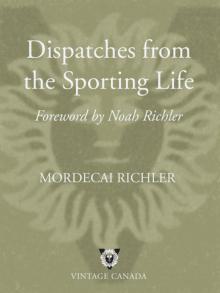 Dispatches From the Sporting Life
Dispatches From the Sporting Life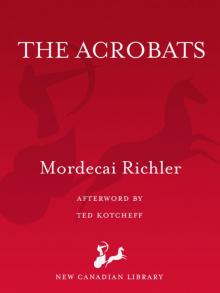 The Acrobats
The Acrobats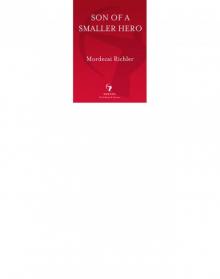 Son of a Smaller Hero
Son of a Smaller Hero Jacob Two-Two-'S First Spy Case
Jacob Two-Two-'S First Spy Case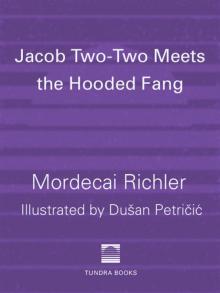 Jacob Two-Two Meets the Hooded Fang
Jacob Two-Two Meets the Hooded Fang Jacob Two-Two and the Dinosaur
Jacob Two-Two and the Dinosaur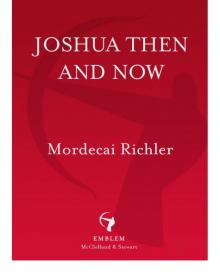 Joshua Then and Now
Joshua Then and Now Solomon Gursky Was Here
Solomon Gursky Was Here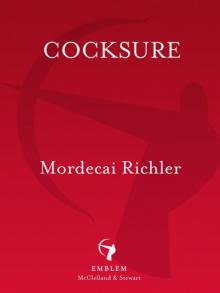 Cocksure
Cocksure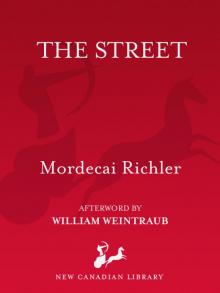 The Street
The Street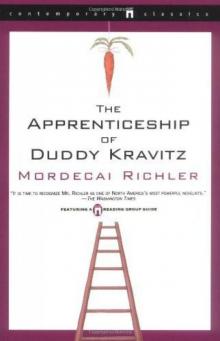 The Apprenticeship of Duddy Kravitz
The Apprenticeship of Duddy Kravitz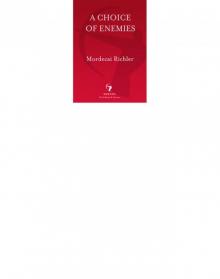 A Choice of Enemies
A Choice of Enemies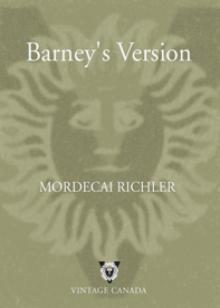 Barney's Version (Movie Tie-In Edition)
Barney's Version (Movie Tie-In Edition)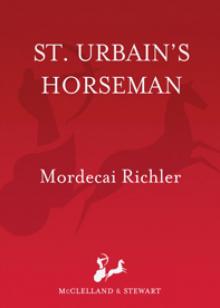 St. Urbain's Horseman
St. Urbain's Horseman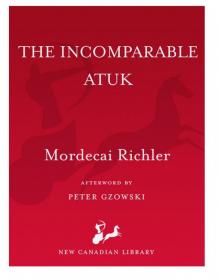 The Incomparable Atuk
The Incomparable Atuk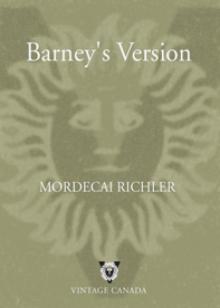 Barney's Version
Barney's Version